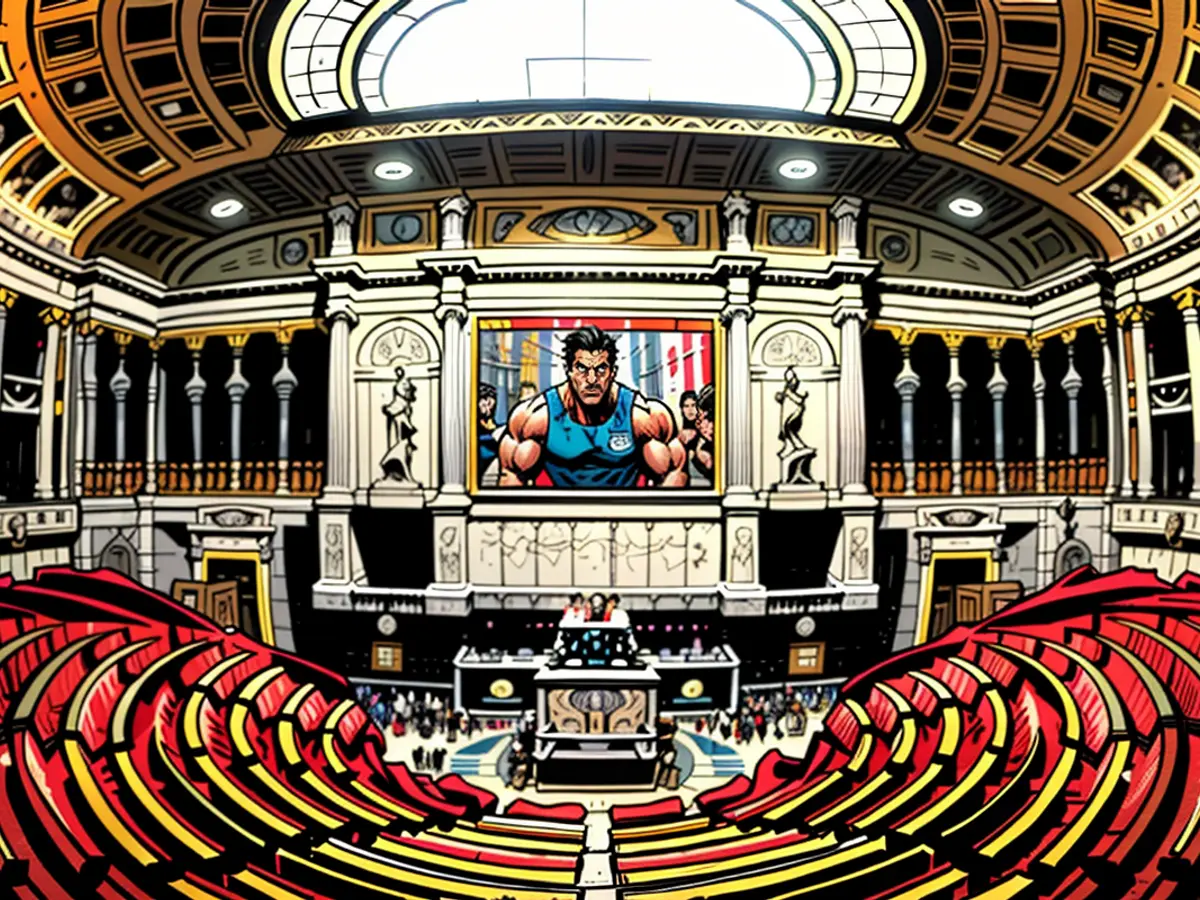France faces difficult government formation after left-wing election victory
Macron rejected the withdrawal request of his Prime Minister's "temporarily." It was expected that the president would delay the complex government formation process until after the Olympics Games in Paris. However, the New Popular Front is unlikely to give Macron that much time: The left-green alliance must demonstrate its government-capable ability and name a candidate or a candidate for the position of Prime Minister "this week," said the Chief of the Socialists, Olivier Faure. So far, the hastily forged alliance of Left Populists, Socialists, Communists, and Greens has not been able to agree on a common candidate for the premiership.
The right-populist Rassemblement National (RN) had gone into the runoff as the favorite and had hoped for an absolute majority. In the end, the RN achieved its best result but landed only in third place.
According to calculations by the news agency AFP, the Rechtspopulists, along with their allies, secured 143 seats, the Macron camp gained over 160 seats, and the New Popular Front obtained between 190 and 195. For an absolute majority in the National Assembly, 289 seats are required.
The first round of the election on June 30 was won by the RN. To prevent further advancement of the Rechtspopulists, numerous candidates from the left-wing alliance and the government camp withdrew from the race in favor of the other.
Coalition building could prove extremely difficult, as the positions of the left-green alliance and the Macron camp are incompatible on many issues. The incumbent Economy Minister Bruno Le Maire warned of a looming "financial crisis" and an "economic downturn" for France in the face of the Left's victory.
"The implementation of the New Popular Front's program would destroy the results of our politics of the past seven years," he declared on Monday in the online service X. The program was "excessive and inefficient."
Le Maire turned to potential coalition partners at the same time: "All political forces that believe in the market economy, the financial restructuring, the energy transition, the building of Europe, and the restoration of state authority must overcome their party interests," he said. The parties most likely to be considered - for example, the Socialists or the conservative Republicans - rejected such plans on election night.
Federal Chancellor Olaf Scholz (SPD) stated, "I and the entire Federal Government are indeed relieved" regarding the setback for the RN. He hoped that Macron would be able to "successfully bring about a constructive government formation." For the upcoming major tasks on EU level - the further development of the Union and the admission of new members - the neighboring country was indispensable, said the Chancellor. "This can only be done together with France."
Macron had called for the pre-term parliamentary election after the poor performance of his government camp and the success of the RN in the European election on June 9, to bring clarity to the political situation, as many experts said. With the result from Sunday, France must prepare for a time of significant political instability: The three major blocs in the National Assembly could block each other, hinder the government, and exacerbate the political crisis in the country.
- Olivier Faure, the Chief of the Socialists, urged the New Popular Front to name their Prime Minister candidate by the end of the week, as Macron's government formation process might be delayed due to the Olympic Games in Paris.
- In contrast to expectations, the Rassemblement National (RN) failed to secure an absolute majority in the run-off election, landing in third place.
- Emmanuel Macron's camp gained over 160 seats in the parliamentary election, while the New Popular Front obtained between 190 and 195 seats, making coalition building a challenging task.
- Gabriel Attal, a spokesperson for Macron's La République En Marche party, expressed his disappointment in the RN's results and hoped for a stable government formation process following the election.
- AFP reported that the Rechtspopulists, along with their allies, secured 143 seats, falling short of the 289 seats required for an absolute majority in the National Assembly.
- After the election victory, Olivier Faure of the Left emphasized the importance of dialogue with other political forces, including parties like the Socialists and conservative Republicans, to address France's pressing challenges.







